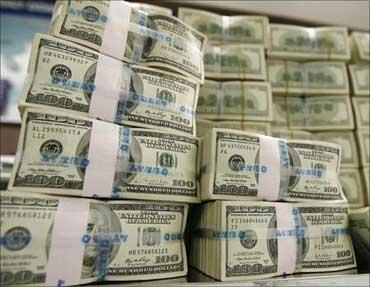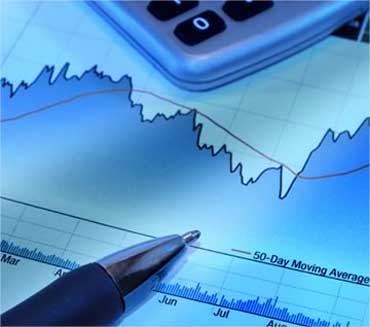BS Reporter in New Delhi
The reshuffle of portfolios and induction of a few new members into the Union Council of Ministers have been widely viewed as a 'damp squib' or at best 'sub-optimal'.
In large part, this negative reaction of the media and of political commentators has been because of the high expectations generated by reports of a major shake-up in the Union Cabinet and the Congress party in the wake of recent scandals and the decline in the government's and the ruling coalition's image.
If these expectations had not been allowed to develop, the level of disappointment would have been lower.
. . .
Of reshuffle and the Indian economy
Having said that, it must, however, be conceded that even this so-called 'musical chairs' has not only sent out some important messages, but has the potential of impacting considerably on economic policy, especially in critical sectors like infrastructure and agriculture.
With the exception of Mamata Banerjee in railways (retained in her post more because she is an important ally facing a crucial election in her home state than because of her performance) and Sushil Kumar Shinde (retained because he is the seniormost Dalit minister in the government and an important source of funds for the party), all other infrastructure sector ministers have been moved around.
. . .
Of reshuffle and the Indian economy
Whatever the politics behind the move, new leadership in key economic ministries like petroleum and natural gas, water resources, civil aviation, surface transport and highways, rural development, food and civil supplies, coal, urban development and steel has the potential to improve performance.
Such change could be for the better, if the new ministers feel recharged and enthused or wish to overcome the negative reputation built up in the past.
Some of them can bring greater transparency to the functioning of the government, others greater efficiency.
Hence, the macro-economic impact of the micro-politics of the reshuffle could be bigger than presently anticipated.
. . .
Of reshuffle and the Indian economy
The past two years have established quite clearly that India's growth process is seriously constrained by infrastructure bottlenecks and the government's inability to deal with the politics of inflation and economic management.
Both Mani Shankar Aiyar and Murli Deora had failed to manage the political economy of energy pricing in India, and Sharad Pawar neglected the food economy.
A seasoned politician and effective political communicator like Jaipal Reddy has to now show that he can handle the domestic politics of global trends in energy prices more effectively.
. . .
Of reshuffle and the Indian economy
Better handling of the food economy is vital to the management of inflation.
This is the task for the new minister on the beat. In civil aviation, a traditional Congress socialist like Vayalar Ravi will be expected to repair the damage done to Air India by his predecessor's excessive love for the private sector.
If the political leadership in the railways and power sector can also be improved in months to come, the constraints on growth posed by these infrastructure sectors can als o be eased.
Beyond infrastructure, India needs better leadership in key economic ministries, including environment, finance, trade and industry.
Hopefully, the message of this reshuffle would be absorbed by the non-shuffled ministers as well!







article